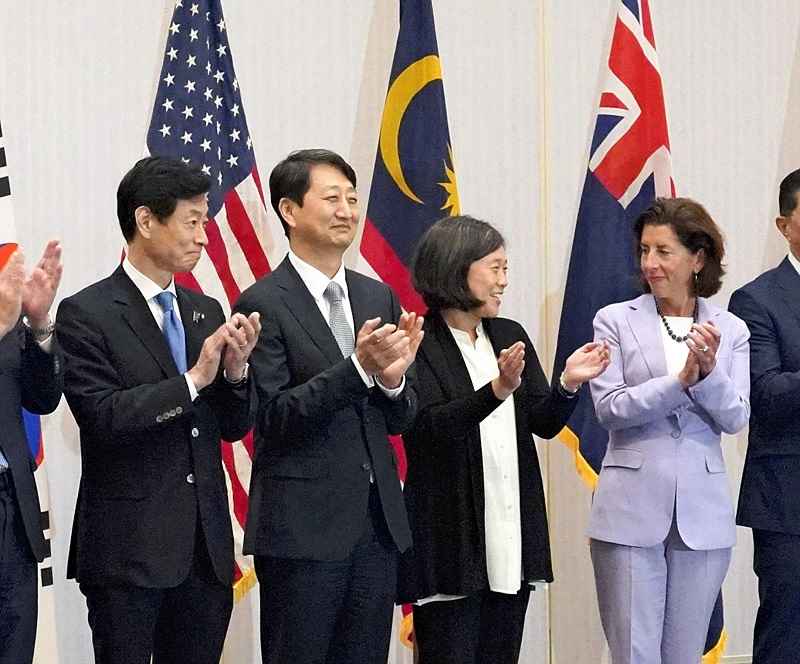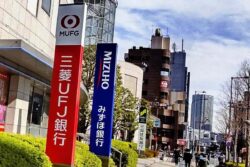IPEF trade ministers officially agree to enter into formal negotiations

Economy, Trade and Industry Minister Yasutoshi Nishimura, left, joins a commemorative photo session in Los Angeles on Thursday.
17:04 JST, September 10, 2022
LOS ANGELES — Ministers from 14 countries agreed Friday to enter into formal negotiations on the Indo-Pacific Economic Framework (IPEF), a new economic zone initiative led by the United States, following two days of talks in Los Angeles.
With China’s growing influence in the Indo-Pacific region in mind, the IPEF member countries intend to strengthen cooperation under four key pillars: trade, supply chains, a clean economy and a fair economy.
Ministerial meetings for the initiative were held in a face-to-face format for the first time on Thursday and Friday, with a ministerial statement outlining future negotiation items for the four key pillars.
India decided not to participate in the trade pillar portion of the negotiations, but the 13 other countries will participate in negotiations for all of the key pillars.
U.S. Commerce Secretary Gina Raimondo said at a press conference that a series of meetings would be held for the initiative before the end of this year, and that the next ministerial meeting would probably take place in early 2023.
The statement produced by the ministers included specific details of what the countries should work on.
For the trade pillar, the statement said the countries will address the protection of laborers and the environment, the digitization of customs procedures and the advancement of trusted and secure cross-border data flows.
For the supply chains pillar, the statement calls for the member countries to collaborate to create a mechanism for information sharing and crisis response in order to mitigate and prevent future supply chain disruptions for critical commodities, such as semiconductors and pharmaceuticals.
For the clean energy pillar, the member countries agreed to promote infrastructure investment support for decarbonization and technological cooperation for developing countries. And for the fair economy pillar, they listed anti-corruption measures, such as for bribery, and curbing tax evasion.
“The IPEF embodies how we intend to move forward to bring equitable growth to our region,” U.S. Trade Representative Katherine Tai said.
Economy, Trade and Industry Minister Yasutoshi Nishimura, who represented Japan at the meeting, stated at the press conference: “The IPEF can serve as a model for new economic partnerships. Japan will actively contribute to the IPEF.”






